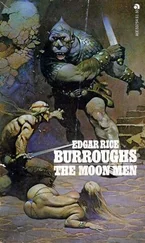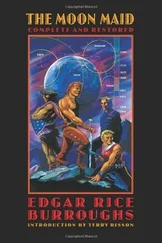Edgar Burroughs - The Lost Continent
Здесь есть возможность читать онлайн «Edgar Burroughs - The Lost Continent» весь текст электронной книги совершенно бесплатно (целиком полную версию без сокращений). В некоторых случаях можно слушать аудио, скачать через торрент в формате fb2 и присутствует краткое содержание. Жанр: Фантастика и фэнтези, на английском языке. Описание произведения, (предисловие) а так же отзывы посетителей доступны на портале библиотеки ЛибКат.
- Название:The Lost Continent
- Автор:
- Жанр:
- Год:неизвестен
- ISBN:нет данных
- Рейтинг книги:4 / 5. Голосов: 1
-
Избранное:Добавить в избранное
- Отзывы:
-
Ваша оценка:
- 80
- 1
- 2
- 3
- 4
- 5
The Lost Continent: краткое содержание, описание и аннотация
Предлагаем к чтению аннотацию, описание, краткое содержание или предисловие (зависит от того, что написал сам автор книги «The Lost Continent»). Если вы не нашли необходимую информацию о книге — напишите в комментариях, мы постараемся отыскать её.
The Lost Continent — читать онлайн бесплатно полную книгу (весь текст) целиком
Ниже представлен текст книги, разбитый по страницам. Система сохранения места последней прочитанной страницы, позволяет с удобством читать онлайн бесплатно книгу «The Lost Continent», без необходимости каждый раз заново искать на чём Вы остановились. Поставьте закладку, и сможете в любой момент перейти на страницу, на которой закончили чтение.
Интервал:
Закладка:
"By what name were these men called?" I asked.
"We call them only the 'men from there,'" she replied, pointing toward the east. "I have never heard that they had another name."
In the light of what I knew of ancient history, it was not difficult for me to guess the nationality of those she described simply as "the men from over there." But what utter and appalling devastation the Great War must have wrought to have erased not only every sign of civilization from the face of this great land, but even the name of the enemy from the knowledge and language of the people.
I could only account for it on the hypothesis that the country had been entirely depopulated except for a few scattered and forgotten children, who, in some marvelous manner, had been preserved by Providence to re-populate the land. These children had, doubtless, been too young to retain in their memories to transmit to their children any but the vaguest suggestion of the cataclysm which had overwhelmed their parents.
Professor Cortoran, since my return to Pan-America, has suggested another theory which is not entirely without claim to serious consideration. He points out that it is quite beyond the pale of human instinct to desert little children as my theory suggests the ancient English must have done. He is more inclined to believe that the expulsion of the foe from England was synchronous with widespread victories by the allies upon the continent, and that the people of England merely emigrated from their ruined cities and their devastated, blood-drenched fields to the mainland, in the hope of finding, in the domain of the conquered enemy, cities and farms which would replace those they had lost.
The learned professor assumes that while a long-continued war had strengthened rather than weakened the instinct of paternal devotion, it had also dulled other humanitarian instincts, and raised to the first magnitude the law of the survival of the fittest, with the result that when the exodus took place the strong, the intelligent, and the cunning, together with their offspring, crossed the waters of the Channel or the North Sea to the continent, leaving in unhappy England only the helpless inmates of asylums for the feebleminded and insane.
My objections to this, that the present inhabitants of England are mentally fit, and could therefore not have descended from an ancestry of undiluted lunacy he brushes aside with the assertion that insanity is not necessarily hereditary; and that even though it was, in many cases a return to natural conditions from the state of high civilization, which is thought to have induced mental disease in the ancient world, would, after several generations, have thoroughly expunged every trace of the affliction from the brains and nerves of the descendants of the original maniacs.
Personally, I do not place much stock in Professor Cortoran's theory, though I admit that I am prejudiced. Naturally one does not care to believe that the object of his greatest affection is descended from a gibbering idiot and a raving maniac.
But I am forgetting the continuity of my narrative—a continuity which I desire to maintain, though I fear that I shall often be led astray, so numerous and varied are the bypaths of speculation which lead from the present day story of the Grabritins into the mysterious past of their forbears.
As I stood talking with the girl I presently recollected that she still was bound, and with a word of apology, I drew my knife and cut the rawhide thongs which confined her wrists at her back.
She thanked me, and with such a sweet smile that I should have been amply repaid by it for a much more arduous service.
"And now," I said, "let me accompany you to your home and see you safely again under the protection of your friends."
"No," she said, with a hint of alarm in her voice; "you must not come with me—Buckingham will kill you."
Buckingham. The name was famous in ancient English history. Its survival, with many other illustrious names, is one of the strongest arguments in refutal of Professor Cortoran's theory; yet it opens no new doors to the past, and, on the whole, rather adds to than dissipates the mystery.
"And who is Buckingham," I asked, "and why should he wish to kill me?"
"He would think that you had stolen me," she replied, "and as he wishes me for himself, he will kill any other whom he thinks desires me. He killed Wettin a few days ago. My mother told me once that Wettin was my father. He was king. Now Buckingham is king."
Here, evidently, were a people slightly superior to those of the Isle of Wight . These must have at least the rudiments of civilized government since they recognized one among them as ruler, with the title, king. Also, they retained the word father. The girl's pronunciation, while far from identical with ours, was much closer than the tortured dialect of the Eastenders of the Isle of Wight . The longer I talked with her the more hopeful I became of finding here, among her people, some records, or traditions, which might assist in clearing up the historic enigma of the past two centuries. I asked her if we were far from the city of London, but she did not know what I meant. When I tried to explain, describing mighty buildings of stone and brick, broad avenues, parks, palaces, and countless people, she but shook her head sadly.
"There is no such place near by," she said. "Only the Camp of the Lions has places of stone where the beasts lair, but there are no people in the Camp of the Lions. Who would dare go there!" And she shuddered.
"The Camp of the Lions," I repeated. "And where is that, and what?"
"It is there," she said, pointing up the river toward the west. "I have seen it from a great distance, but I have never been there. We are much afraid of the lions, for this is their country, and they are angry that man has come to live here.
"Far away there," and she pointed toward the south-west, "is the land of tigers, which is even worse than this, the land of the lions, for the tigers are more numerous than the lions and hungrier for human flesh. There were tigers here long ago, but both the lions and the men set upon them and drove them off."
"Where did these savage beasts come from?" I asked.
"Oh," she replied, "they have been here always. It is their country."
"Do they not kill and eat your people?" I asked.
"Often, when we meet them by accident, and we are too few to slay them, or when one goes too close to their camp. But seldom do they hunt us, for they find what food they need among the deer and wild cattle, and, too, we make them gifts, for are we not intruders in their country? Really we live upon good terms with them, though I should not care to meet one were there not many spears in my party."
"I should like to visit this Camp of the Lions," I said.
"Oh, no, you must not!" cried the girl. "That would be terrible. They would eat you." For a moment, then, she seemed lost in thought, but presently she turned upon me with: "You must go now, for any minute Buckingham may come in search of me. Long since should they have learned that I am gone from the camp—they watch over me very closely—and they will set out after me. Go! I shall wait here until they come in search of me."
"No," I told her. "I'll not leave you alone in a land infested by lions and other wild beasts. If you won't let me go as far as your camp with you, then I'll wait here until they come in search of you."
"Please go!" she begged. "You have saved me, and I would save you, but nothing will save you if Buckingham gets his hands on you. He is a bad man. He wishes to have me for his woman so that he may be king. He would kill anyone who befriended me, for fear that I might become another's."
"Didn't you say that Buckingham is already the king?" I asked.
"He is. He took my mother for his woman after he had killed Wettin. But my mother will die soon—she is very old—and then the man to whom I belong will become king."
Читать дальшеИнтервал:
Закладка:
Похожие книги на «The Lost Continent»
Представляем Вашему вниманию похожие книги на «The Lost Continent» списком для выбора. Мы отобрали схожую по названию и смыслу литературу в надежде предоставить читателям больше вариантов отыскать новые, интересные, ещё непрочитанные произведения.
Обсуждение, отзывы о книге «The Lost Continent» и просто собственные мнения читателей. Оставьте ваши комментарии, напишите, что Вы думаете о произведении, его смысле или главных героях. Укажите что конкретно понравилось, а что нет, и почему Вы так считаете.








